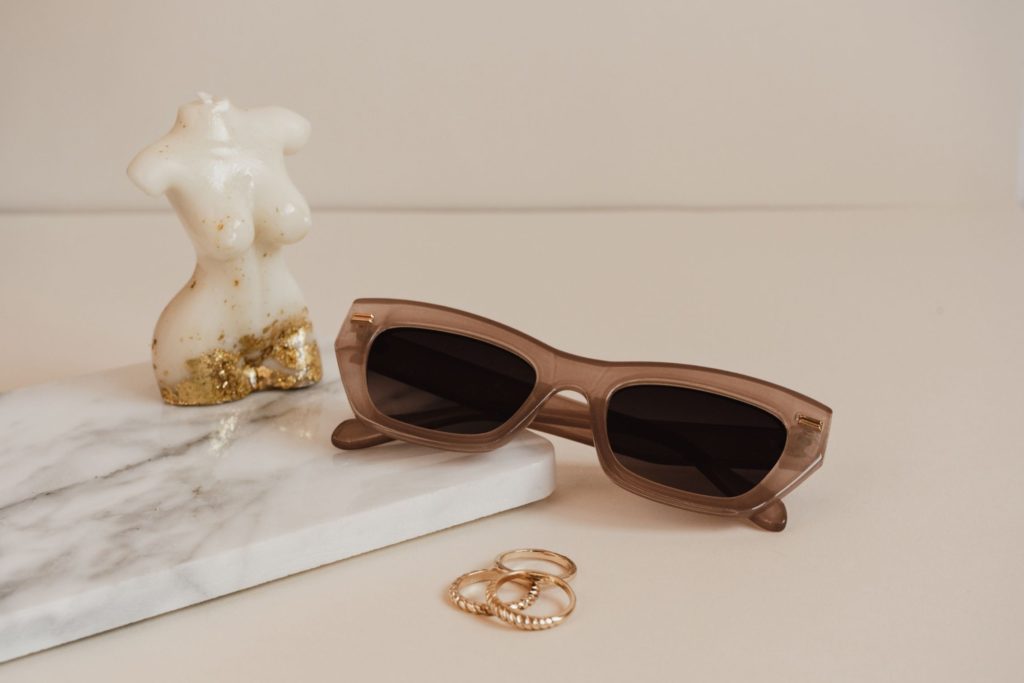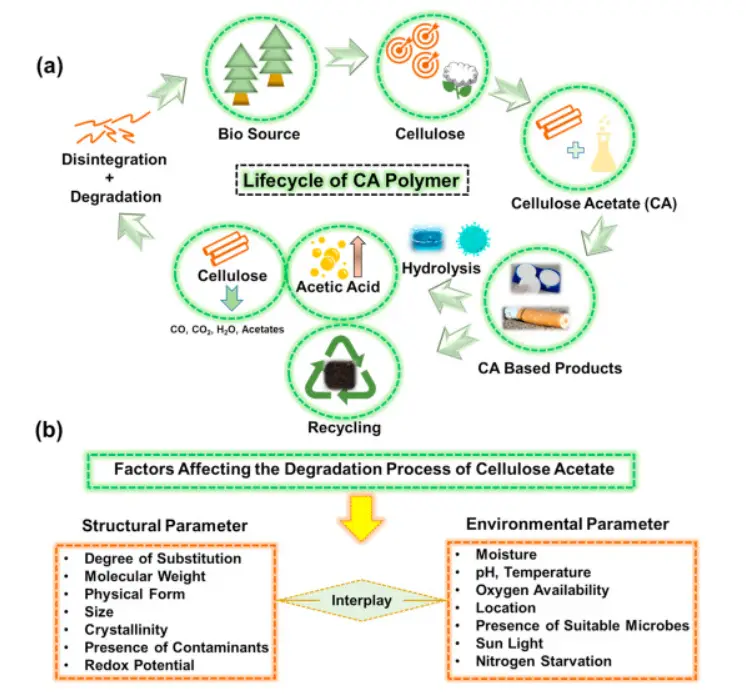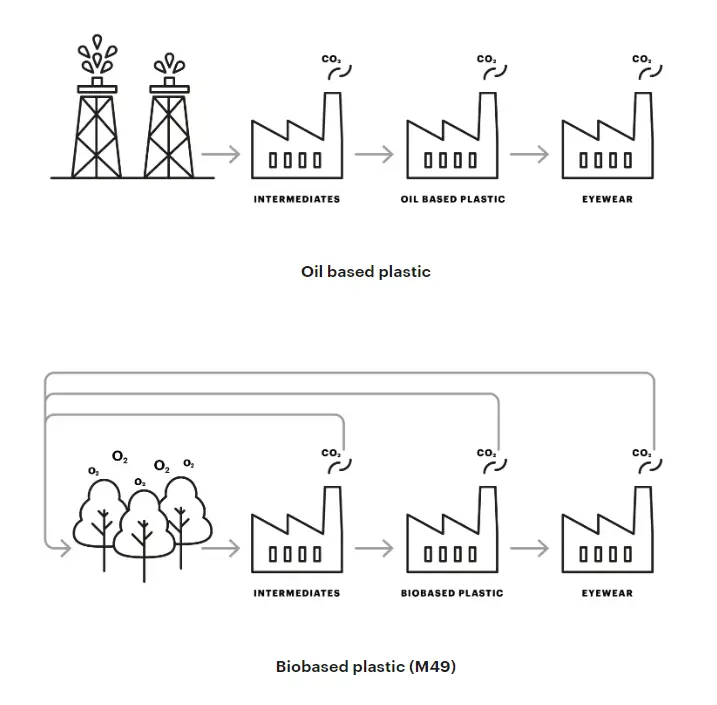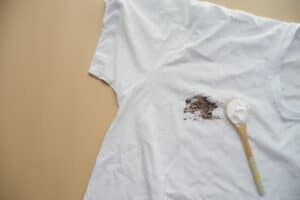Plant-Based Sunglasses
- What Are They Made From Really?

What is bio acetate?
Are plant-based sunglasses truly plant-based?

Are sunglasses biodegradable?

Are plant-based sunglasses biodegradable and compostable?
- At least 90% biodegradation occurs within 6 months.
- More than 90% is disintegrated – the residual mass with dimensions greater than 2mm must be less than 10% of the initial mass.
- The resulting compost has low content of heavy metals and no ecoatoxicological effect on plant growth.
- Absence of negative effects in the composting phase.
Are plant-based plastics a better choice?
- Rather than using fossil fuel-based plasticisers, it uses plant-based plasticisers
- The plants grown to support the production of bio acetates are able to sequester carbon (see the diagram below depicting this)
- The substance is phthalate free. Phthalate is used as a plasticiser in cellulose acetate frames. The health issues were not covered here but health organisations note that some types of phthalates affect the reproductive system in animals. The effect on human health is not as clear
- The majority of the material is plant-based
- The material is biodegradable when compared to alternatives like cellulose acetate
- Biodegradation is essentially clean and does not harm the environment further
- There are compostable products available (M4 bioplastic)

- It is not always clear where the plants are sourced from and if they are sustainably produced
- There are reports that there are cheap eyewear factories in China that produce frames using bio acetate however they use harmful chemicals such as acetone to polish and glue the glasses together. The concern here is the harm to factory workers.
- The process involves the use of harmful chemicals (such as sulfuric acid)
- The end product is not completely natural and plant-based
What to look out for when purchasing products made from bio acetate
- The product is bio-based as determined under ASTM D6866
- The product is bio-degradable as determined under ISO 14855
- It is free of harmful plastiziers such as Diethyl Phthalate (DEP)
- It is manufactured in a regulated environment (for example under the Europeans Unions REACH chemical guidelines)
- Who manufactures the plant-based materials?
- What country is the frame produced in and what ethical work standards are in place?
- Where are the plant-based materials sourced?
- Are they sourced sustainably?
- Are the frame certified bio-based?
- Are the frame certified biodegradable?
After more information? You may be interested in....
Don’t Throw Them Away – Practical Uses for Your Old Glasses – if you have old eyewear, don’t trash it! Explore this guide, which covers options to repair, reuse and recycle glasses.
Sustainable Sunglasses – Know What to Look Out For – learn about the different options available to make your sunglass purchase a sustainable one.
9 Sustainable Sunglass Brands Worth Checking Out – for a list of Australian brands making sunglasses from sustainable materials and a summary of the pros and cons of each.
Sustainable Choices for Your Eyewear – Your Options Covered – for information on reusing old frames and lenses and where to get glasses second-hand.
Replacing New Lenses in Your Old Frames – Is it Worth it? – for further information about getting new lenses into your existing frames, in particular, how much this will cost
7 Sustainable Eyewear Brands Worth Checking Out – for a list of Australian brands making prescription glasses from sustainable materials.
A Close Look At Bamboo Sunglasses – Sustainable or Not? – for a great overview of bamboo as a material source, allowing you to judge whether it is a sustainable option or not.
Recycled Metal Sunglasses – From Waste to Wearable – discover the unusual source materials used in recycled metal sunglasses and the studies that show they are a sustainable option.




